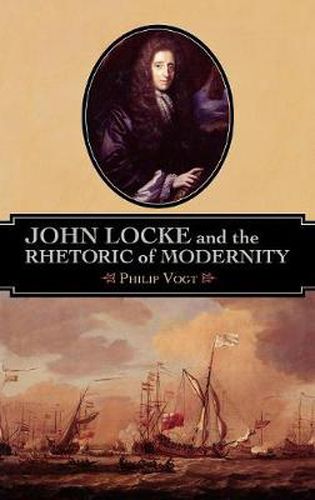Readings Newsletter
Become a Readings Member to make your shopping experience even easier.
Sign in or sign up for free!
You’re not far away from qualifying for FREE standard shipping within Australia
You’ve qualified for FREE standard shipping within Australia
The cart is loading…






To correct a persistent distortion in our understanding of Locke and thus in our understanding of what it means to be modern, Philip Vogt reassesses specific aspects of Lockean rhetoric: the theory and use of analogy, the characteristic tropes, the topoi that connected Locke with his original and later audiences. Vogt argues that Locke was not, as commonly supposed, opposed to figuration in language; that he did not rely on scientific societies to police linguistic innovation in science, but trusted instead to the authority of normal usage; that he was not a naive empiricist who viewed the mind as a tabula rasa; and that his commitment to the mechanical philosophical was not unconditional. At the heart of Lockean linguistics and epistemology is an elaborate-but hitherto neglected- rule of Analogy which governs the ways we perceive the world, as well as the means by which we convey our perceptions. Preceding Locke’s famous invocation of the state of nature to explain the social contract was an extensive treatment of the prelapsarian condition as a state of nature in its own right. To describe life in our fallen condition, Locke relies on the metaphor of a ship which brings to the sensual encounter with nature faculties that are fallible yet adequate to the challenge. This vision-the aesthetic counterpart to the probabilistic science emerging in Locke’s day-appears simultaneously in the seascapes of Willem van de Velde the younger. Vogt concludes that the modern claim of human adequacy is the true target of the postmodern reaction.
$9.00 standard shipping within Australia
FREE standard shipping within Australia for orders over $100.00
Express & International shipping calculated at checkout
Stock availability can be subject to change without notice. We recommend calling the shop or contacting our online team to check availability of low stock items. Please see our Shopping Online page for more details.
To correct a persistent distortion in our understanding of Locke and thus in our understanding of what it means to be modern, Philip Vogt reassesses specific aspects of Lockean rhetoric: the theory and use of analogy, the characteristic tropes, the topoi that connected Locke with his original and later audiences. Vogt argues that Locke was not, as commonly supposed, opposed to figuration in language; that he did not rely on scientific societies to police linguistic innovation in science, but trusted instead to the authority of normal usage; that he was not a naive empiricist who viewed the mind as a tabula rasa; and that his commitment to the mechanical philosophical was not unconditional. At the heart of Lockean linguistics and epistemology is an elaborate-but hitherto neglected- rule of Analogy which governs the ways we perceive the world, as well as the means by which we convey our perceptions. Preceding Locke’s famous invocation of the state of nature to explain the social contract was an extensive treatment of the prelapsarian condition as a state of nature in its own right. To describe life in our fallen condition, Locke relies on the metaphor of a ship which brings to the sensual encounter with nature faculties that are fallible yet adequate to the challenge. This vision-the aesthetic counterpart to the probabilistic science emerging in Locke’s day-appears simultaneously in the seascapes of Willem van de Velde the younger. Vogt concludes that the modern claim of human adequacy is the true target of the postmodern reaction.